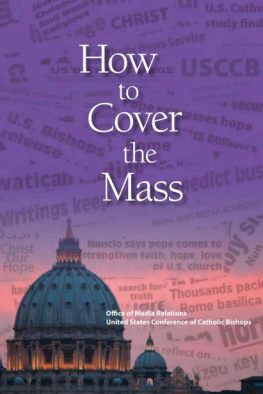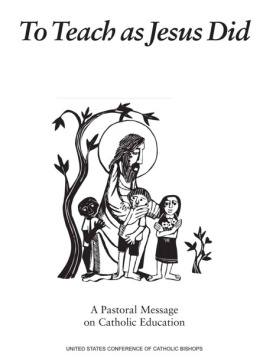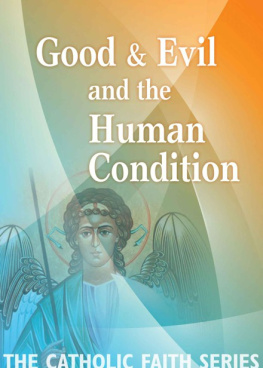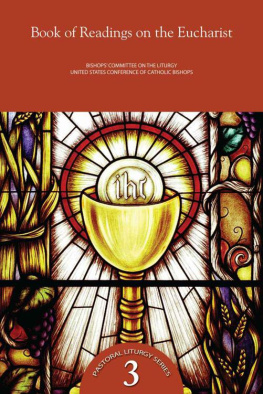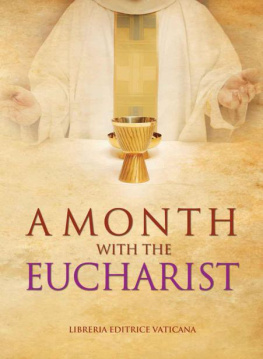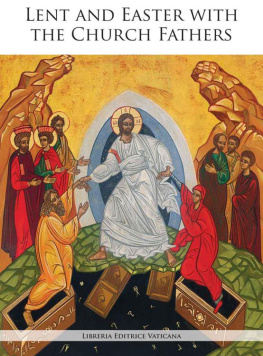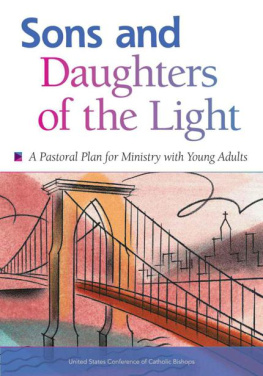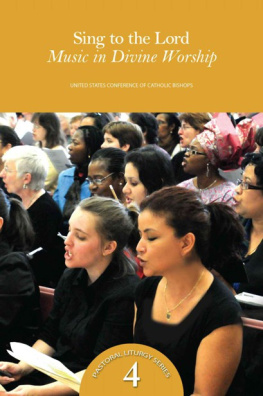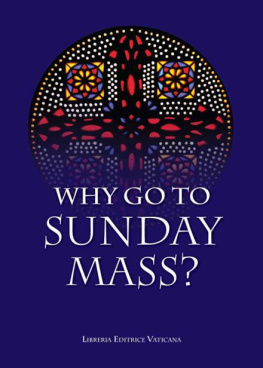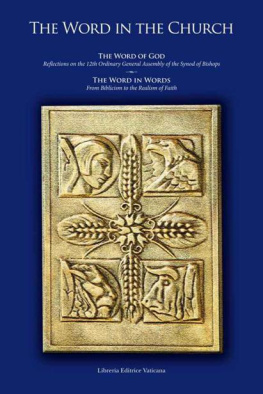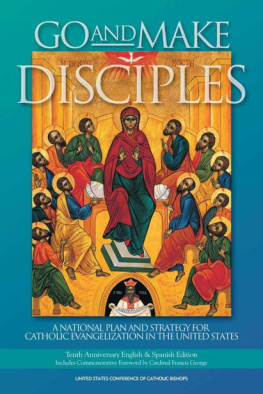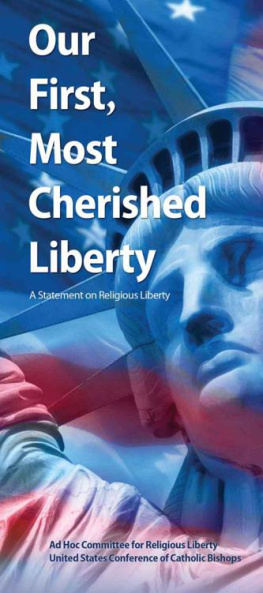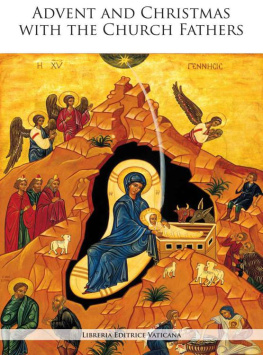United States Conference of Catholic Bishops - How to Cover the Mass
Here you can read online United States Conference of Catholic Bishops - How to Cover the Mass full text of the book (entire story) in english for free. Download pdf and epub, get meaning, cover and reviews about this ebook. year: 2012, publisher: United States Conference of Catholic Bishops, genre: Religion. Description of the work, (preface) as well as reviews are available. Best literature library LitArk.com created for fans of good reading and offers a wide selection of genres:
Romance novel
Science fiction
Adventure
Detective
Science
History
Home and family
Prose
Art
Politics
Computer
Non-fiction
Religion
Business
Children
Humor
Choose a favorite category and find really read worthwhile books. Enjoy immersion in the world of imagination, feel the emotions of the characters or learn something new for yourself, make an fascinating discovery.
- Book:How to Cover the Mass
- Author:
- Publisher:United States Conference of Catholic Bishops
- Genre:
- Year:2012
- Rating:5 / 5
- Favourites:Add to favourites
- Your mark:
- 100
- 1
- 2
- 3
- 4
- 5
How to Cover the Mass: summary, description and annotation
We offer to read an annotation, description, summary or preface (depends on what the author of the book "How to Cover the Mass" wrote himself). If you haven't found the necessary information about the book — write in the comments, we will try to find it.
United States Conference of Catholic Bishops: author's other books
Who wrote How to Cover the Mass? Find out the surname, the name of the author of the book and a list of all author's works by series.
How to Cover the Mass — read online for free the complete book (whole text) full work
Below is the text of the book, divided by pages. System saving the place of the last page read, allows you to conveniently read the book "How to Cover the Mass" online for free, without having to search again every time where you left off. Put a bookmark, and you can go to the page where you finished reading at any time.
Font size:
Interval:
Bookmark:
Jerry Filteau
A resource of the
Office of Media Relations
United States Conference of Catholic Bishops
Executive Editor
Sister Mary Ann Walsh, Director
USCCB Office of Media Relations
United States Conference of Catholic Bishops
Washington, D.C.
The Mass is at the heart of the Catholic Church. It conveys the depth of Catholic theology, especially in the Eucharist, which is at its center. Rich in symbolism, the Mass provides a deeply sacred moment for those who participate in it, and even sometimes for those who merely observe it.
The Office of Media Relations of the United States Conference of Catholic Bishops (USCCB) developed this resource to assist the media in their important work of covering the church at prayer. The Mass is public prayer, yet on many occasions, it is also a news event. Journalists can be found, for example, at an ordination of a bishop, at a wedding or funeral of a noted personality, at a gathering of people meeting around church concerns, or to commemorate a special occasion in society.
How to Cover the Mass describes the various parts of the liturgy, explains ceremonies therein, and defines liturgical terms so that media can accurately describe events for those who follow their coverage. This pamphlet follows up on a 2008 resource, How to Cover the Catholic Church , which journalists in both the United States and beyond have found useful.
The editor is veteran journalist Jerry Filteau. Filteau has been not just a reporter writing about church events, but also a resource for colleagues in various media outlets who have been assigned to cover the Catholic Church for local, national and international media outlets. With confidence-giving precision, and knowledge of church history and fine details of liturgical celebrations, Filteau has put together a media guide related to everything from Sunday Mass to the installation of a bishop to the annual Red Mass, which blesses the nations legal community.
Special thanks are due to the Catholic Communication Campaign, which funded this effort. We hope it will be especially pertinent as the Catholic Church prepares to introduce the latest version of the Roman Missal , the ritual text containing prayers and instructions for the celebration of the Mass.
Thanks also to Monsignor Anthony Sherman and Father Richard Hilgartner of the USCCB Secretariat of Divine Worship and to the USCCB Office of Communications for all their support for this endeavor.
The media bear a heavy responsibility in our society. The USCCB Office of Media Relations hopes this resource will help them bring accuracy and clarity to their vital work.
Sister Mary Ann Walsh, RSM
Director of the Office of Media Relations
USCCB
Many Catholic churches have special rules for news or other photographers and videographers who wish to record events visually during the Mass. Since the Mass is an act of worship, an assembly of people at prayer, church officials may object to free movement practices of news photography/videography that may be perfectly acceptable at many other newsworthy events where a number of people are gathered.
Many churches, for example, prohibit flash photography during the Mass, considering it disruptive of the atmosphere of prayer and worship desired in the assembly.
Many parishes and dioceses also have rules barring photographers from wandering the aisles, or especially from entering the sanctuarythe area around the altarfor the sake of a good angle for a news shot. For a Mass that constitutes a major news event (even just locally), the diocese or parish may require photographers and videographers to station themselves unobtrusively in one designated place where their activities will least distract worshipers from the prayer and worship they are engaged in.
If you recognize the reluctance of church officials to have the activities of photographers distract from the act of worship, you may be in a better position to negotiate with a pastor or diocesan media relations office for somewhat more lenient rules on particularly newsworthy occasions, predicated on a photographers non-interference in the liturgical celebration itself, to be able to provide more adequate photo/video coverage of the event.
If you consider a parish Mass newsworthy for some reasone.g., special human interest because it is a parish centenary Mass, or it marks the closing of the parish or is the first Mass of a newly ordained priest who grew up in that parishit may be helpful for the photographer or editor to negotiate with the pastor beforehand to make some exceptions to the parishs usual rules restricting or prohibiting photography at Mass.
For newsworthy diocesan events such as the ordination of a new bishop or new priests, or the celebration of a major anniversary in the diocesan cathedral, the diocese may seek to accommodate visual media coverage by providing one or two platforms or other sites in the church from which photographers can film the celebration. Contact the local diocesan media relations office to find out what provisions are being made for, and what restrictions will apply to, news coverage of the event.
Apart from major international, national or diocesan Masses, news photography credentials are ordinarily not required, but obtaining maximum photo access and mutually agreed rules of conduct may often require advance contact with the partyparish, diocese, religious order or other religious organizationsponsoring or hosting the Mass.
Ordinarily there are no restrictions on where print or broadcast journalists may position themselves during a Mass. But for some events of significant news interest, the diocese or parish may provide a small special section for journalists covering the eventespecially if afterward the journalists may be led to a news conference or the like.
If youre covering a special parish Mass or a local Mass being celebrated by a religious order marking some significant occasion in the orders life (e.g., an anniversary of the orders founding or its local establishment; the acceptance of new postulants or novices; or the first or solemn vows of new members), contact the local pastor or officials of the religious order to discuss how you can best cover the event.
If youre covering a diocesan Mass worthy of news coverage, contact the local diocesan media relations director beforehand to see if you can be provided any special seating (or audio feed arrangements if desired) and whether any credentials or other advance requests must be supplied for those arrangements.
The Second Vatican Council called the Eucharist the source and summit of the Christian life.
For Catholics the Mass is the central act of worship. It is the eucharistic sacrifice in which Catholics (and Eastern Orthodox churches) believe that bread and wine are really and truly transformed into Christs body and blood and then shared among those assembled.
The Mass is described in classic and modern Catholic literature both as a sacrifice and as a banquetcelebrating both Christs salvific passion and death for all humankind and the joyful anticipation of living with God in a heavenly banquet.
This small booklet is not about the theology of the Mass, however; it will focus on more mundane things like the difference between a procession and recessional, a chasuble and a stole, a miter and a crosier; or the correct terms for various parts of the Mass. In other words, it will try to help you understand the Catholic Mass and describe it accurately to your readers.
Most of you are probably aware of at least some of the terms and distinctions related to the Mass, but I hope what follows will help you further, especially those of you who are new to religious reporting or to coverage of Catholic Masses.
Font size:
Interval:
Bookmark:
Similar books «How to Cover the Mass»
Look at similar books to How to Cover the Mass. We have selected literature similar in name and meaning in the hope of providing readers with more options to find new, interesting, not yet read works.
Discussion, reviews of the book How to Cover the Mass and just readers' own opinions. Leave your comments, write what you think about the work, its meaning or the main characters. Specify what exactly you liked and what you didn't like, and why you think so.

